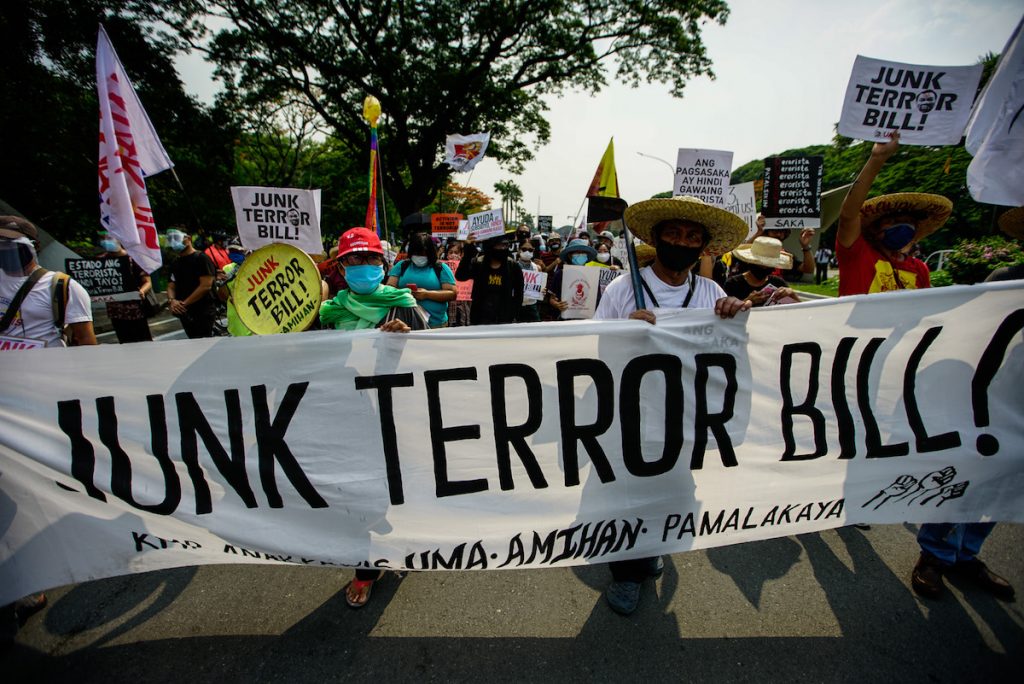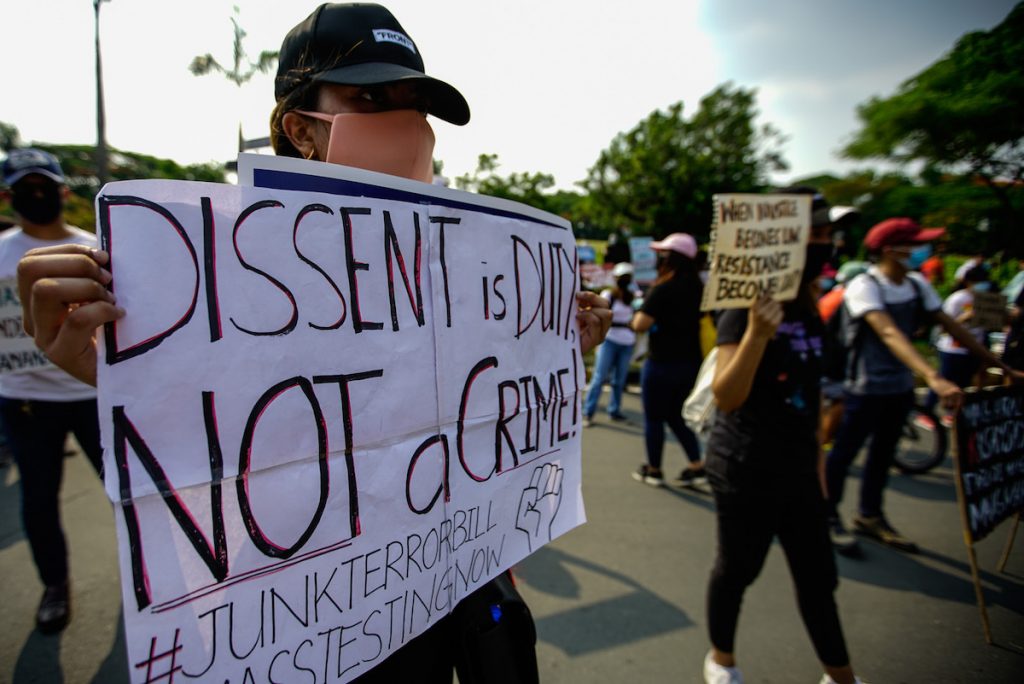Last night, a young, very successful businessman shared his thoughts on a book that determined his path in life.
“To Kill A Mockingbird,” he said, taught him that life isn’t all about winning, that doing the right thing for others counts more.
That lesson is crucial today, he pointed out, because the stampede to the “new normal” could trample on people’s rights and welfare.
It was the second time during the day that someone’s words pointed the mind to the direction of Pope Francis’ recent messages on a world struggling to recover from a pandemic.
The pope on Pentecost Sunday spoke of the need to put people first before money and macro-economics.
He warned against an artificial pessimism aimed at making people accept injustice as a “normal” of pandemic containment.
“Nothing will return as before” crushes hope. It tells people to settle for crumbs, both in terms of livelihood and freedoms.
The pope also told priests in a letter to keep the flame of faith burning. Hope is contagious, he said, if cultivated and strengthened in the encounter with others.
The pope’s words first flashed in mind as I saw a thousand people marching to the state university and holding a protest rally against an anti-terror law that would strip the Philippines of any pretention to democracy.
The law, which was passed by Congress this week, is the last thing the nation needs.
It is government’s priority even while it has junked more aid for families affected by the two-month COVID-19 lockdown — millions permanently laid off, or on prolonged “vacations,” or working but for a fraction of already low wages.

Injustice has always walloped the country’s poor. But it has been an exceptionally gory last four years for Filipinos.
A new report by the U.N. Human Rights Office on human rights under President Rodrigo Duterte presents stark facts.
At least 8,663 drug suspects have been killed, with some estimates putting the real toll at more than triple that number — only one conviction.
At least 248 human rights defenders, legal professionals, journalists and trade unionists have been killed in relation to their work.
The U.N. office describes the situation as “near impunity.” Duterte’s reign is marked by the glaring absence of due process. There is also plenty of evidence indicating a systematic pattern of cover-up.
Law enforcers backed up the thin fiction of all the slain thousands having fought back with suspicious post-operation reports.
“Police repeatedly recovered guns bearing the same serial numbers from different victims in different locations” in 25 national capital region operations from August 2016 to June 2017, the report said.
The stone-walling did not end with the police. The president, his spokesmen, and his solicitor-general threatened and arrested people helping families of the slain in their quest for justice.
Duterte again and again accused rights defenders of being tools of drug lords and terrorists, or both. He made it clear that they, too, were included in his “kill’ orders.
The new anti-terror bill codifies the president’s desire to do away with groups working to hold him and his government accountable for the four-year bloodbath.
The same sectors — plus a huge segment of the population otherwise not interested in politics — also want an accounting of the mess of the government’s COVID-19 containment program.
Like most things rolled out by Duterte, brutality characterized the two-month lockdown.
Duterte sees those same groups — including legislators, journalists, health and church workers, peasant and indigenous leaders, and outspoken students and youth — impediments to a recovery program heavy on exploitation by cronies and foreign patrons of the country’s lands, waters and public utilities at the expense of the urban poor, indigenous peoples and farmers.
The new law allows a small group of Cabinet members to order arrests of suspected “terrorists” on the flimsiest of evidence, hold them for as many as 24 days, and to freeze accounts of organizations and individuals.

Duterte’s supermajority rushed passage of the law as a general quarantine allowed business to reopen but without the critical transport support and health services for workers.
They probably thought the rush to get back to work and fear of the state’s brute might would limit protests online, where 700,000 have signed a petition against the proposed law.
But activists launched protests, taking heed of health guidelines but pushing the limits of mass activity.
The country’s last two Miss Universe winners cheered them on, as did feisty celebrities — mostly women — who also raised funds for jeepney drivers arrested in protests last week.
Online and on ground, the protests have been creative, marked with the stamp of youth’s ability to cross boundaries and link arms with “the others.”
Pope Francis touched on this very need in his letter to priests.
He warned them of falling for “substitute or palliative activities, waiting for everything to return to ‘normal’ [and] ignoring the deep wounds and the number of people who have fallen in the meantime.”
I don’t know how many protesters in Asia’s largest Catholic majority listen to Pope Francis. But they sure are acting in the spirit of his message.
Inday Espina-Varona is an award-winning journalist in the Philippines. She is a recipient of the “Prize for Independence” of the Reporters Without Borders in 2018. The views expressed in this article are the opinions of the author and do not necessarily reflect the editorial stance of LiCAS.news.






